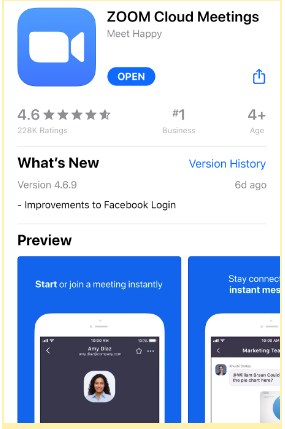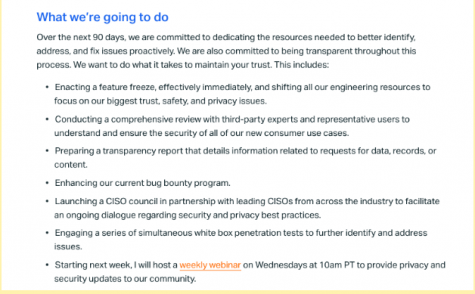Quinnipiac issues warning for “Zoombombing”
April 8, 2020
With classes moved online due to COVID-19, more Quinnipiac students, faculty and staff are using video conferencing software to complete work, meet for advising, and connect for student organization meetings.
However, there are concerns about the software program’s, Zoom, privacy policy. Nicknamed “Zoombombing,” hackers have hijacked Zoom meetings and shown graphic or derogatory content.

After investigating and testing options to mitigate risks to users, Quinnipiac now requires all university-related Zoom meetings to use a password.
“Effective today, April 7 at 10 p.m., all newly created Zoom meetings will require a password,” Vice President and Chief Information and Technology Officer Fred Tarca said in an email to the Quinnipiac community.
This does not apply to previously scheduled Zoom meetings, but Tarca advises students to set meeting passwords and enable the “waiting room” and “authenticated user” features.
Tarca and Vice President of Equity and Inclusion and Chief Diversity Officer Don C. Sawyer III sent an email to the Quinnipiac community on Tuesday, March 31.
“Unfortunately, we recently were made aware that a person not affiliated with Quinnipiac hacked into a university Zoom session and made racially charged statements,” Tarca and Sawyer said. “This type of behavior, which also has occurred at other universities and organizations using web conferencing tools such as Zoom, will not be tolerated at Quinnipiac, and we’re taking immediate steps to address it.”
According to a March 26 Vice article, “The Zoom app notifies Facebook when the user opens the app, details on the user’s device such as the model, the time zone and city they are connecting from, which phone carrier they are using, and a unique advertiser identifier created by the user’s device which companies can use to target a user with advertisements.”

“On March 29th, we updated our privacy policy to be more clear and transparent around what data we collect and how it is used – explicitly clarifying that we do not sell our users’ data, we have never sold user data in the past, and have no intention of selling users’ data going forward,” said Zoom Founder and CEO Eric Yuan in a statement on Zoom’s blog.
Other schools have faced similar challenges, even causing the NYC Department of Education to shift its online learning system from Zoom to Microsoft Teams.
Quinnipiac has issued a guide to enhance security features when using Zoom, which is also available on MyQ.






